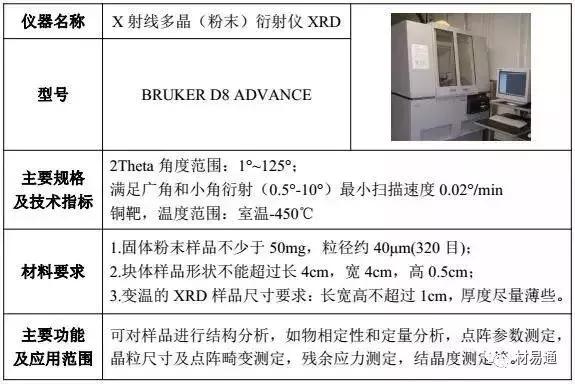哪些词后面必须跟不定式(哪些词后面加动名词)

△Remember to post the letter.
记住把这封信寄了.(“寄信”未发生)
△I remember posting the letter.
我记得寄了那封信.(“寄信”已发生)
△He forgot to pay me the money.
他忘记要给我付钱了.(“付钱”未发生)
△He forgot paying me the money.
他忘记曾给我付过钱.(“付钱”发生了)
(2) try 后接不定式表示设法做某事,接动名词表示做某事试试(看有什么效果).如:△I’ll try to come tomorrow.
我明天设法来.
△Let’s try knocking at the back door.
咱们敲敲后门试试.
(3) mean 后接不定式表示打算(想要)做某事,接动名词表示意味着(做某事,接动名词表示意味着要)做某事.如:△He did not mean to hurt you.
他不是有意要伤害你.
△This illness will mean going to hospital.
得了这种病就意味着要住院.
(4) stop 后接动名词表示停止做某事,接不定式表示停下正在做的事去做另一事.如:△He stopped speaking, and there was not a sound in the room. 他停止讲话,房里一点声音也没有了.
△He stopped to listen, but there was no more sound. 他停下来听,但再也没有听到什么声音.(stop后接的不定式不是宾语,而是目的状语)
(5) can’t help后接动名词表示禁不住做某事,接不定式表示不能帮助做某事.如:After listening to my grandmother's jokes, I couldn't help laughing.
后接动名词表示禁不住做某事,接不定式表示不能帮助做某事.如:He couldn’t help crying when he heard the news. 他听到这个消息时禁不住哭了.
△The medicine can’t help to get rid of your cold. 这药不能帮你治好感冒.
注:go on to do sth 和go on doing sth 也有类似差别:前者表示做完某事后接着做另一事,后者表示继续做正在做的事.如:△You oughtn’t to go on living this way. 你不应该再这样生活下去了.(go on 后接doing通常被认为是现在分词而不是动名词)
△Go on to do the other exercises after you have finished this one. 做完这个练习后, 请接着做其他的练习
五、既可接动名词也可接不定式作宾语但语态不同的动词:在 need, want, require等表示“需要”的动词后,接不定式和动名词均可,且含义也相同,但是语态不同:接动名词时用主动式表示被动含义,接不定式时则要用被动式表示。如:△”My coat needs mending [to be mended].
我的外套需要缝补一下.
△Your coat wants brushing [to be brushed]. 你的大衣需要刷一刷.
既可接不定式又可接动名词作宾语的动词 有:一、后接不定式或动名词且含义相同的动词。这类动词常见的有:like 喜欢 / love 喜欢 / hate 憎恨 / prefer 宁可 / begin 开始 / start 开始 / continue 继续 / can’t bear 不能忍受 / bother 麻烦 / intend 想要 / attempt 试图 / cease 停止,等.如:△He likes travelling [to travel] alone.
他喜欢单独旅行.
△He began doing [to do] this job last year. 他去年开始做这工作.
Don’t bother to get [getting]dinner for me. 请不必费事为我做饭了.
注意:当 like, love, hate, prefer 与 would, should 连用时,其后只能接不定式.如:△I’d like to drop in and see you tonight.
我想今晚来看你.
另外,当 begin, start 本身为进行时态或后接 know, realize, understand 等静态动词时,其后的动词只能用不定式.如:△He is beginning to work in that company. 他即将开始去那个公司工作.
△After the talk with his English teacher, he began to like English. 跟英语老师谈话之后,他开始喜欢英语了.
二、forget, remember, regret 后接不定式或动名词含义不同后接不定式或动名词含义不同。动词 forget, remember, regret 等接不定式时,表示非谓语动词的动作发生于谓语动词的动作之后;接动名词作宾语时,表示非谓语动词的动作发生于谓语动词的动作之前.如:△I forgot to tell you about it.
我忘记告诉你那件事了.
△I remembered giving the book to Li Lei, but he said I didn’t.
我记得我把书给李蕾了,但是他说我没有给.
此外,动词 forget, remember, regret 等接动名词、接动名词的完成式或不定式的完成式作宾语时,意义相同.如:△ I regretted to have broken the rules of our class.
= I regretted having broken the rules of our class.
我后悔违反了班规.
三、mean后接不定式或动名词含义不同。动词 mean 接不定式作宾语时,表示一种意图,意思是“打算做,想要做”;接动名词作宾语时,表示解释,意思是“意味着,意思是”.如:△I didn’t mean to bother you.
我本不想打扰你.
△What he said means going there by air.
他的话的意思是坐飞机去那儿.
四、try后接不定式或动名词含义不同。try 接不定式作宾语时,表示一种决心,意思是“设法做,尽力做”;接动名词作宾语时,表示尝试,意思是“试着做”.如:△I’ll try to catch up with my class.
我将尽力赶上同学们.
△I tried reading the text without consulting my dictionary. 我试着不查词典来阅读课文.
五、need, require, want, deserve后接不定式或动名词语态不同。need, require, want, deserve 等表示“需要”的动词后另一动词作宾语时,该动词用不定式或动名词均可,但是其语态不同,即动名词用主动形式表示被动意义,而不定式则用被动形式表示被动意义.如:△The flowers need watering every day.
= The flowers need to be watered every day. 花儿需要每天浇水.
注意:若 need, require, want后接动词为句子主语所发出的动作,则只能用不定式,不能用动名词.如:△I need to water the flowers every day.
我需要每天给花浇水.
六、can’t help后接不定式或动名词含义不同。can’t help 后接不定式时,意思是“不能帮忙做某事”;接动名词作宾语时,意思是“禁不住做某事,情不自禁做某事”.如:I’m very busy now, so I can’t help (to) clean the room.
我现在很忙,因此不能帮助打扫房间.
The girl couldn’t help crying when she saw her mother again.
当小女孩再次看到母亲时,她情不自禁地哭了起来.
【说明】以下两个动词后接不定式或动名词(不一定是用作宾语)意思也不同:△go on to do sth (做完某事后)继续做另一事) (不定式作状语)△go on doing 继续做一直在做的事 (动名词作状语)△stop to do sth 停下正在做的事以便去做另一事 (不定式作状语)△stop doing sths停做正在做的事 (动名词作宾语)一、只能后接不定式的动词和短语归纳有的动词后只能用不定式而不能接动名词.如ask, demand(要求), plan, intend, mean(计划), manage, do / try one’s best, make an attempt(努力), learn(学习), wish, hope, desire, expect, long, want, would like, should like, would prefer(), wish,希望、愿意), agree, promise(同意), decide, determine, choose, make a decision, make up one’s mind(决定), offer(主动提出), apply(申请), help(帮助), fail(不能、没有), prepare(准备), pretend(假装), refuse(拒绝), happen(碰巧), afford(负担得起)等.1. remember to do sth. 记住要做某事(未做) remember doing sth. 记得做过某事(已做)Remember to close the door,please.
记着关门.
I remember closing the door.
我记得关了门了.
2. forget to do sth. 忘记去做某事(未做) forget doing sth. 忘记做过某事(已做)The light in the office is stil on. He forgot to turn it off.
办公室的灯还在亮着,他忘记关了.
He forgot turning the light off.
他忘记他已经关了灯了.
3. regret to do sth. 遗憾要做某事(未做) regret doing sth. 后悔/抱歉做过某事(已做)I regret to tell you that you can't pass the examination.
我很遗憾地通知你你不能通过这次考试.
I regret disturbing yo so long.
我很抱歉打扰了你那么久.
4. try to do sth. 努力做某事 try doing sth. 尝试做某事He tries to get the apple above the shelf. But fails to reach it.他努力去够架子上的苹果,但是没能够到。
After a while ,Brown comes in and try showing his ability.
过了一会儿,布朗进来并尝试着表现他的能力。
5. mean to do sth. 计划做某事 mean doing sth. 意味着做某事I meant to go, but my father would not allow me to.
我想去,但是我父亲不肯让我去。
Doing that means wasting time.
那样做意味着浪费时间。
6. can’t help to do sth. 不能帮助做某事 can’t help doing sth. 情不自禁做某事 △I can't help to do such stupid thing.我不能帮着做这样愚蠢的事。
△The movie is so funny. I can't help laughing!这部电影如此搞笑。我情不自禁地笑了。
7. go on to do sth. 继续做另一件事 go on doing sth. 继续做同一件事He went on doing his homework in his room after supper.
晚饭后他继续在自己的房间里做家庭作业。
After finishing his homework,he went on to read the text.
写完家庭作业后,他又继续读课文。
8. stop to do sth. 停止原来做的事情而去做另一件事stop doing sth. 停止正在做的事情△The two girls stopped talking when they saw me.那两个女孩一见到我就停止了讲话。
△The two girls stopped to talk to me when they saw me.这两个女孩一看到我就停下来和我讲话。
声明:整理自网络!
,
免责声明:本文仅代表文章作者的个人观点,与本站无关。其原创性、真实性以及文中陈述文字和内容未经本站证实,对本文以及其中全部或者部分内容文字的真实性、完整性和原创性本站不作任何保证或承诺,请读者仅作参考,并自行核实相关内容。文章投诉邮箱:anhduc.ph@yahoo.com






